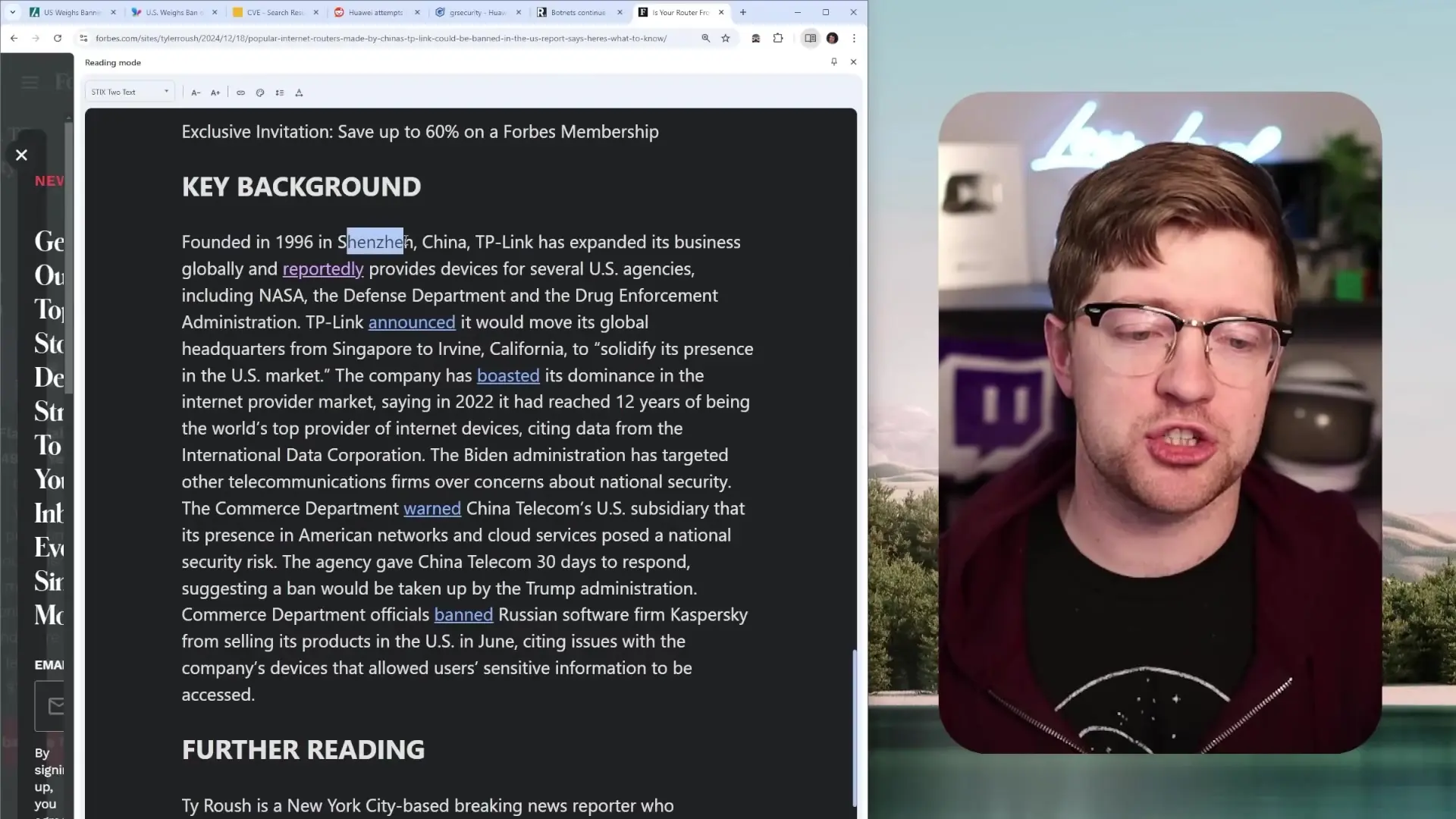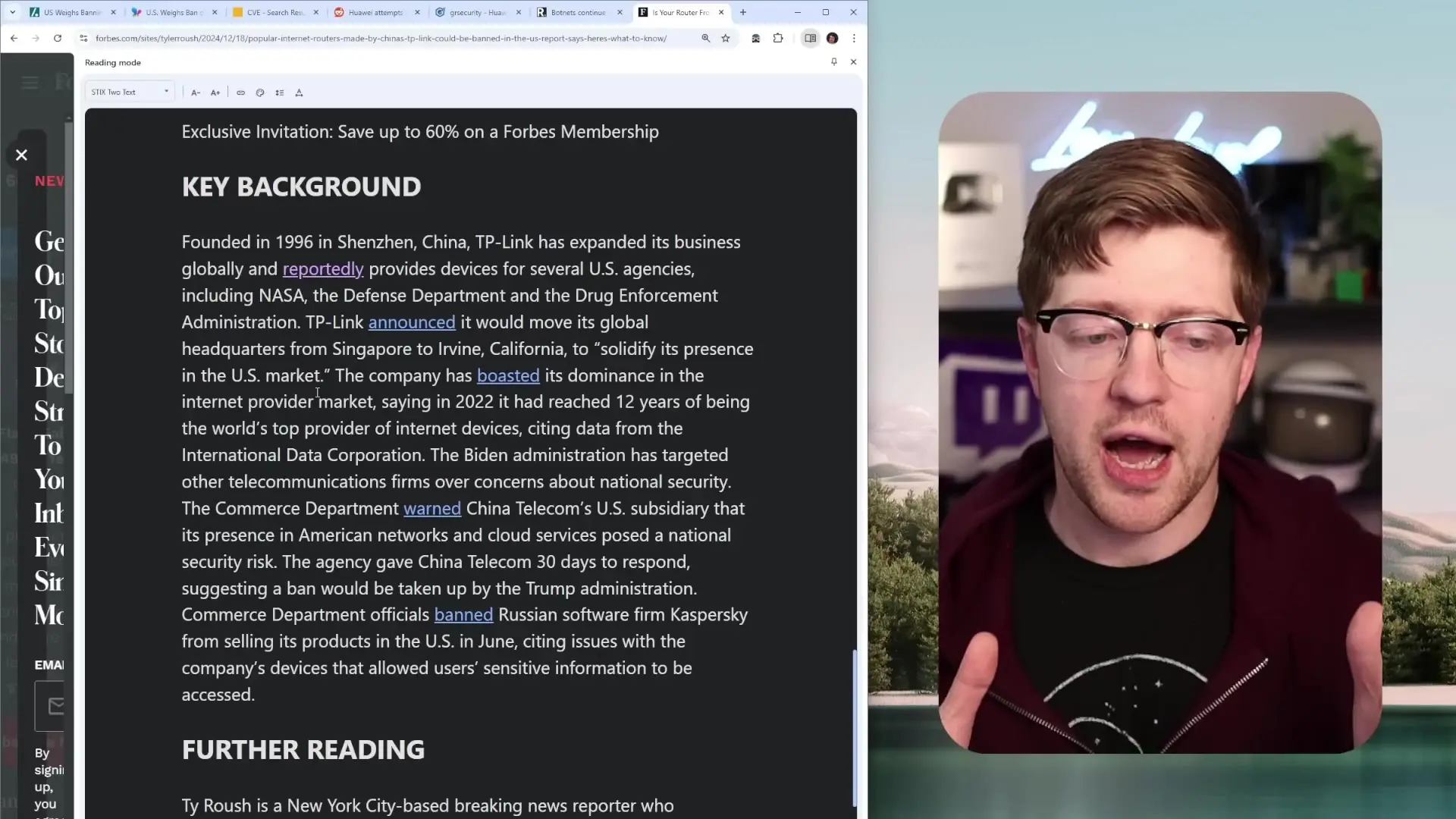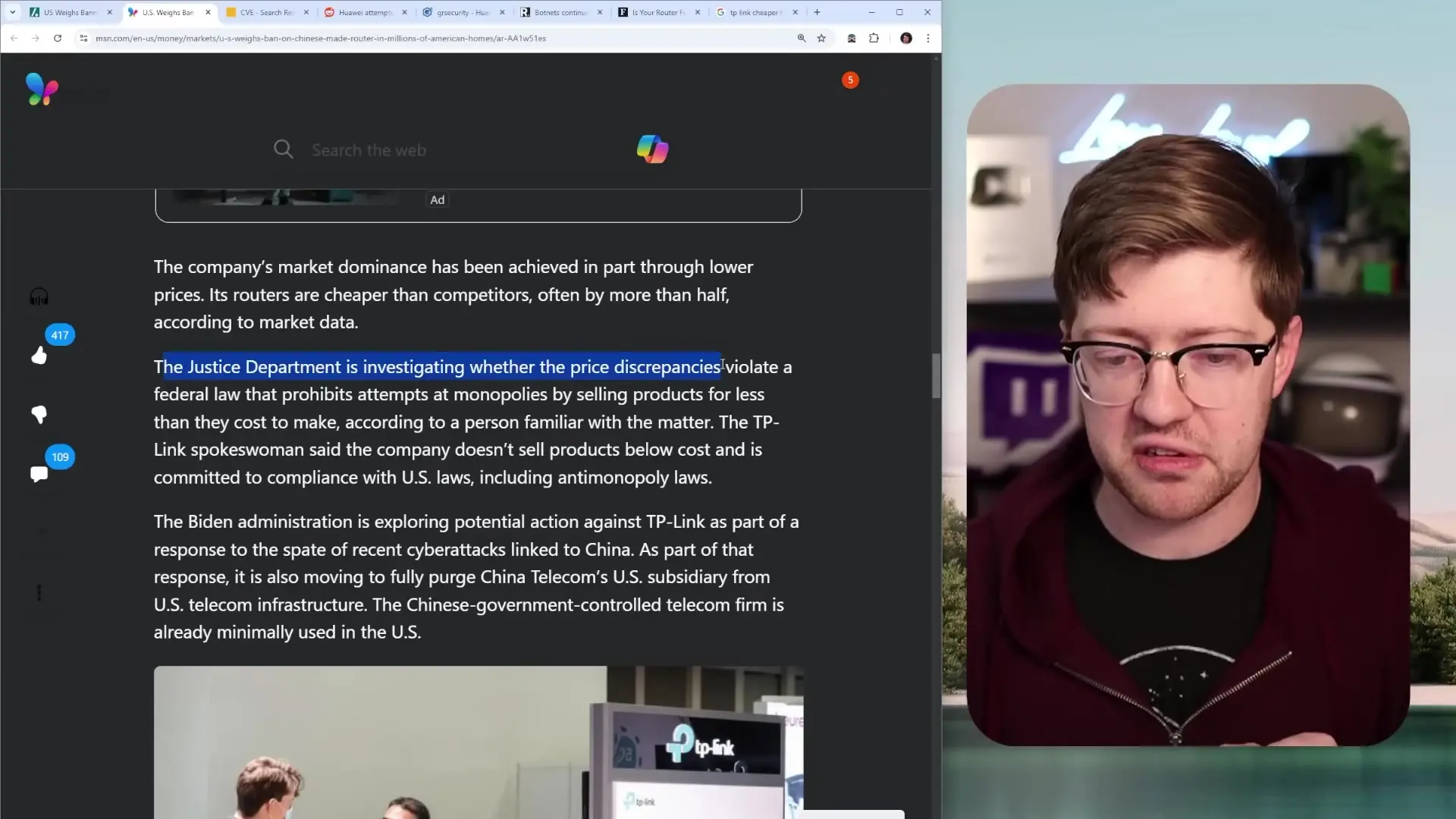
The US government is considering a significant ban on Chinese-manufactured routers, specifically targeting TP-Link, a company with a substantial 65% market share in the US home and small business router market. This potential ban stems from mounting concerns about security vulnerabilities and potential national security threats, reflecting a broader pattern of the US having issues with inferior technology from certain foreign manufacturers.
The Rise of TP-Link in the US Market

Founded in 1996 in Shenzhen, China, TP-Link has steadily expanded its global presence, eventually establishing a headquarters in Irvine, California to strengthen its position in the American market. The company's strategy included targeting major US institutions, including government agencies like NASA and the Department of Defense.
What has made TP-Link particularly successful in penetrating the US market is its pricing strategy. The company's routers are consistently priced significantly lower than competitors, leading to widespread adoption among American consumers and small businesses. This pricing strategy has been so aggressive that the Justice Department is now investigating whether it violates federal anti-monopoly laws that prohibit selling products below manufacturing cost.
Security Concerns: Vulnerabilities or Backdoors?
At the heart of the government's concerns are the numerous security vulnerabilities found in TP-Link routers. According to bipartisan congressional opinions, these devices contain an "unusual degree of vulnerabilities" that could potentially be exploited for cyber attacks. Security researchers have documented extensive lists of critical vulnerabilities in TP-Link products, with a particular pattern of stack buffer overflows and remote code execution vulnerabilities appearing consistently across multiple router models and firmware versions.
The central question being raised is whether these vulnerabilities are accidental coding errors or intentional backdoors. This distinction is often difficult to determine in software security, as the functional difference between a vulnerability and a backdoor can be minimal from a technical perspective.

The concern is amplified by the fact that routers serve as the gateway between home or business networks and the internet, making them critical points for potential surveillance or network infiltration. With TP-Link's significant market penetration, this creates a substantial attack surface that could be exploited by foreign actors.
Precedent for Technology Bans on National Security Grounds
This potential ban on TP-Link follows similar actions taken against other foreign technology companies. In recent years, the US government has:
- Banned Huawei networking equipment from US telecommunications infrastructure
- Prohibited the use of Kaspersky antivirus software, a Russian security product, on government systems
- Implemented restrictions on various Chinese technology products deemed to pose security risks
These actions reflect growing concerns that recent technology has not impacted old laws adequately to address national security risks in an interconnected global technology ecosystem. The US regulatory action on the tech sector may come too late — or not at all in some cases, leading to preventative bans rather than regulatory solutions.
The Broader Context: Chinese Cyber Operations
The potential TP-Link ban comes amid increasing reports of Chinese cyber operations targeting US infrastructure. Security researchers have identified threat actors like "Salt Typhoon" and "Volt Typhoon" that have reportedly targeted US telecommunications companies and critical infrastructure sectors.
According to Department of Justice reports, these operations have utilized compromised consumer routers to create botnets for cyber attacks. Interestingly, while TP-Link routers have been implicated, American-made Cisco and Netgear routers have also been compromised in these operations, suggesting that vulnerability issues extend beyond just Chinese manufacturers.
Market Impact and Consumer Implications

If implemented, this ban would significantly reshape the US router market, where TP-Link currently holds a dominant position. American consumers and businesses would need to transition to alternative products, likely at higher price points. This could potentially lead to increased costs for internet connectivity, particularly affecting lower-income households that have relied on TP-Link's affordability.
The ban would also create opportunities for domestic and allied nations' networking companies to increase their market share, potentially spurring innovation and competition in the space, though potentially at higher consumer costs.
Recommendations for Router Security
Regardless of the outcome of this potential ban, there are several steps users should take to enhance their router security:
- Consider replacing routers from manufacturers with questionable security records (TP-Link, D-Link, Tenda) with products from companies with stronger security practices
- Enable automatic firmware updates on all network devices to ensure security patches are applied promptly
- Regularly check for and manually update firmware if automatic updates aren't available
- Change default administrator credentials and use strong, unique passwords
- Disable remote management features unless absolutely necessary
These practices can help mitigate risks regardless of which router brand you use, as security vulnerabilities have been found across manufacturers from various countries.
Balancing Security and Market Access
The potential ban on TP-Link highlights the ongoing tension between open markets and national security concerns. While free market principles suggest that consumers should have access to a wide range of products regardless of national origin, the increasing integration of technology into critical infrastructure raises legitimate security questions.
As technology becomes more deeply embedded in our daily lives and critical systems, finding the right balance between market openness and security protections remains a significant challenge. The US government's approach to TP-Link will likely serve as a precedent for how similar cases are handled in the future, shaping the landscape of technology regulation for years to come.
Whether this potential ban represents a justified security measure or an overreaction will depend largely on the specific evidence of vulnerabilities and their exploitation, much of which may remain classified for national security reasons. What's clear is that as the digital and physical worlds become increasingly intertwined, the security of networking equipment will remain a critical national security concern.
Let's Watch!
US Government Considers Ban on TP-Link Routers: What You Need to Know
Ready to enhance your neural network?
Access our quantum knowledge cores and upgrade your programming abilities.
Initialize Training Sequence